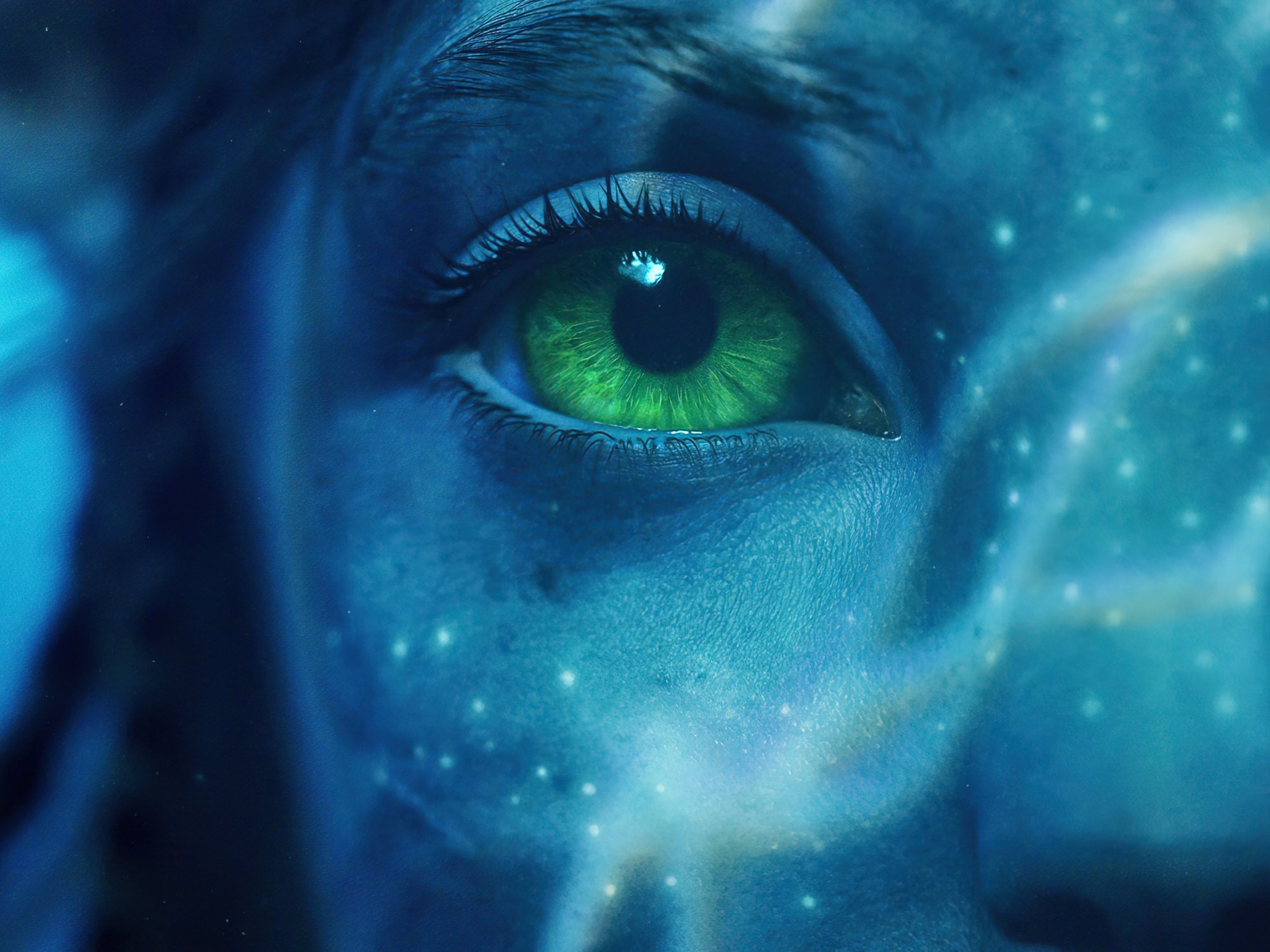Film Review — Avatar: The Way of Water
DOUBT JAMES CAMERON AT YOUR OWN PERIL
Avatar: The Way of Water is the most compassionate blockbuster of our time. A dazzling gallery frame around cinematic technology in the hands of one James Cameron, its wild spectacle, unbelievable detail, and technical wizardry will blast the eyeballs out of your sockets, but its honest and sincere undercurrents just might be its secret weapon. Like its predecessor, Avatar: The Way of Water is an essential theatrical experience. This film was viewed in Dolby Cinema 3D with variable frame rates and reviewed accordingly. Minor spoilers ahead…
13 years and boundless leaps in technology later, James Cameron returns with Avatar: The Way of Water. Ruminating upon the mega-success of its predecessor, and now one of the highest-grossing films of all time, Cameron postulates: “I think anybody that’s seen the movie knows why; it’s a fucking gigantic adventure that’s an all-consuming emotional experience that leaves you wrung out by the end of the movie. And it was groundbreaking visually, and it still holds up today.” He’s not wrong. The most common grievances against the original Avatar - its clunkiness, its derivative storytelling (“It’s Pocahontas in space!”) - often miss how potent it is at marrying disparate threads of convention with Cameron’s obsessive wizardry and his own sincerity. The story of a broken man fighting against his own people to protect a found family, exhilaratingly interwoven with an anti-imperialist rally cry and Cameron’s own conservationist principles, Avatar is as earnest as blockbusters come, and never one to forget the simple pleasures of knife-wielding mech suits duking it out with nine-foot tall aliens.
Now, Avatar: The Way of Water, continues that thread with a maxed-out dial. Set over a decade after the end of Avatar, the sequel finds Jake Sully (Sam Worthington) fully embracing his post-human existence with his Na’vi love Neytiri (Zoe Saldaña). With a cornball narration - because let’s face it, Cameron has never excelled at elegant exposition - Jake recounts his new role as Olo'eyktan chieftain after driving the human colonists from Pandora, settling into a domestic bliss with Neytiri and their four Na’vi children: teenage sons Neteyam (Jamie Flatters) and Lo’ak (Britain Dalton), their youngest daughter Tuk (Trinity Bliss), and the adopted Kiri, played by Sigourney Weaver (whose Dr. Grace Augustine perished in Avatar). It’s a short-lived peace once again interrupted by the return of the “sky people,” human interlopers armed with a new set of teeth and a resurrected Colonel Miles Quaritch (Stephen Lang), now reborn into his own Na’vi avatar for a singular purpose: revenge.
…its wild spectacle, unbelievable detail, and technical wizardry will blast the eyeballs out of your sockets, but its honest and sincere undercurrents just might be its secret weapon.
In perhaps The Way of Water’s wisest move, Cameron quickly displaces the Sully family from the forested Omaticayan jungle to the reefs of the Metkayina, Pandora’s aquatic Na’vi. Fleeing from the bloodthirsty Quaritch - last seen in Avatar skewered by Neytiri’s arrows - the Sullies seek refuge with Tonowari (Cliff Curtis) and his frosty wife Ronal (Kate Winslet) amidst their seaside village. For Jake and his family, especially the children, it’s a difficult adjustment to learn new customs and waterborne skillsets, but for the audience, it’s the perfect showcase for Cameron and a decade’s worth of technological advancements. I’ve never been a big proponent of high-frame-rate filmmaking - and it’s by no means perfect here - but Cameron might be the closest to figuring it all out: The Way of Water is absolutely astonishing to look at. And while the 48 to 60 frames-per-second stuff will likely never beat the “it looks like a video game” allegations, Cameron undoubtedly hits the sweet spot in deploying motion-smoothed setpieces, cherry-picking and nestling them among some of the most immersive 3-D filmmaking you’ve ever seen.
Those expecting propulsive spectacle off the backs of The Way of Water’s breakneck first act might be a little dismayed by the film’s more languid, meditative middle stretch; shockingly, however, you might find that Cameron’s prowess - combined with Russell Carpenter’s exquisite lensing - lends even more power to its exploratory midsection than its huge action beats. With hypnotic water sims, gorgeous underwater vistas, and sea beasties so realistic you can almost feel the leather of their watery hides, The Way of Water’s slowly unfurling domestic saga - full of familial strife and rebellious teens - is just as arresting as its big robot melees. But that’s not to say Cameron doesn’t deliver on the action; full of nasty ecoterrorists painted in the most snarling, cruel brush imaginable, this Avatar sequel sets up a knock-down-drag-out confrontation for the ages that will have you rooting for human heads to be placed on pikes.
“…shockingly, however, you might find that Cameron’s prowess…lends even more power to its exploratory midsection than its huge action beats.
In almost every possible way, The Way of Water is more deftly penned than its predecessor. Springboarding from Avatar’s familiar beats, Cameron adds Rick Jaffa and Amanda Silver to the writers’ room to expand upon its themes: Avatar 2 just might be Cameron’s most personal film yet, deepening its anti-colonialist crusade and once again interfacing it with ruminations on found family, conservation, and how easily our science and curiosity gets married to the military. Fully engrained in its sentimentality, The Way of Water isn’t sophisticated, but it’s refreshingly earnest where the nuclear unit at its center earns it a beating heart that only fluttered in fits and starts in the original. Everything is bigger and better in The Way of Water thanks to the Sully Clan: the triumphs are sweeping, the tragedies wrenching.
Avatar: The Way of Water is transportive cinema at its finest, a return portal to another world widened by a decade of passion and technology. If you weren’t sold on the first Avatar’s heart-on-its-sleeve sincerity and inherent goofiness, I’m not sure the sequel will convert you, but betting against James Cameron - his humanism, his love for the ocean, his classical discipline - is a fool’s game. At one point, Jake Sully holds his family close: “We are sea people now.” After seeing The Way of Water, all I can say is: I am too, Jake Sully. I am too.













